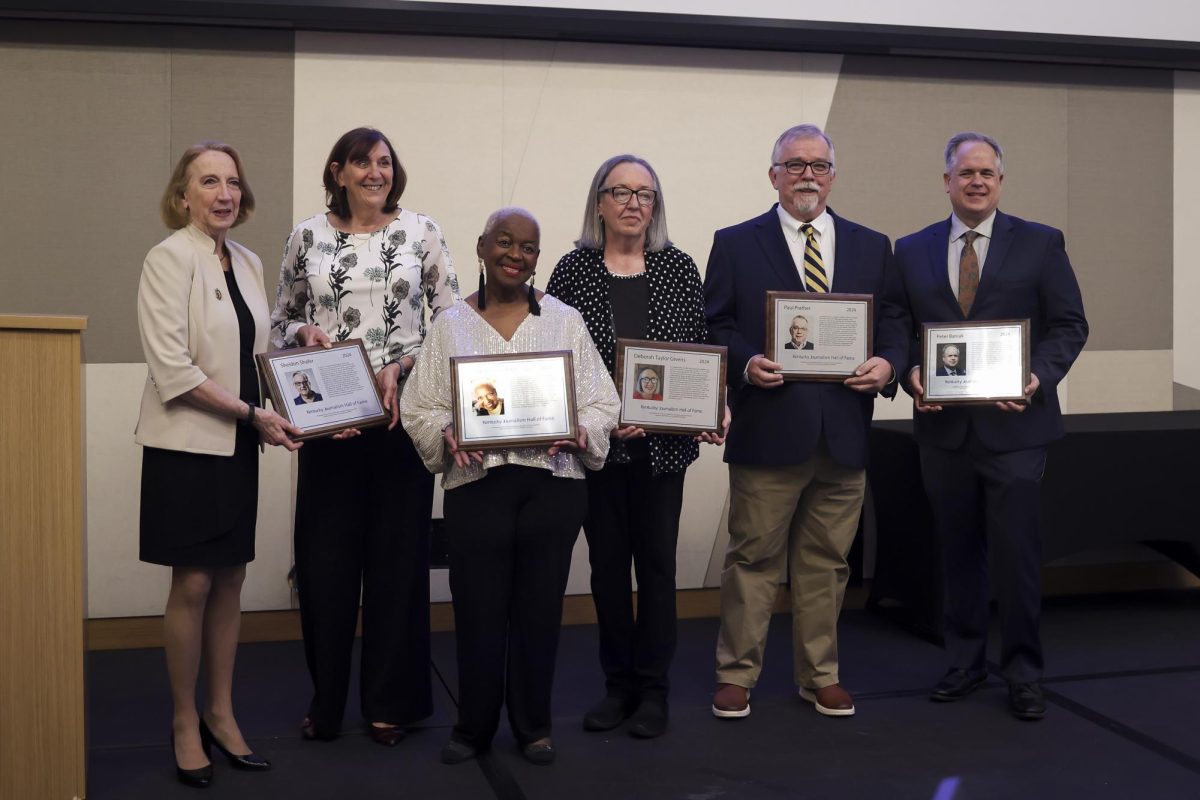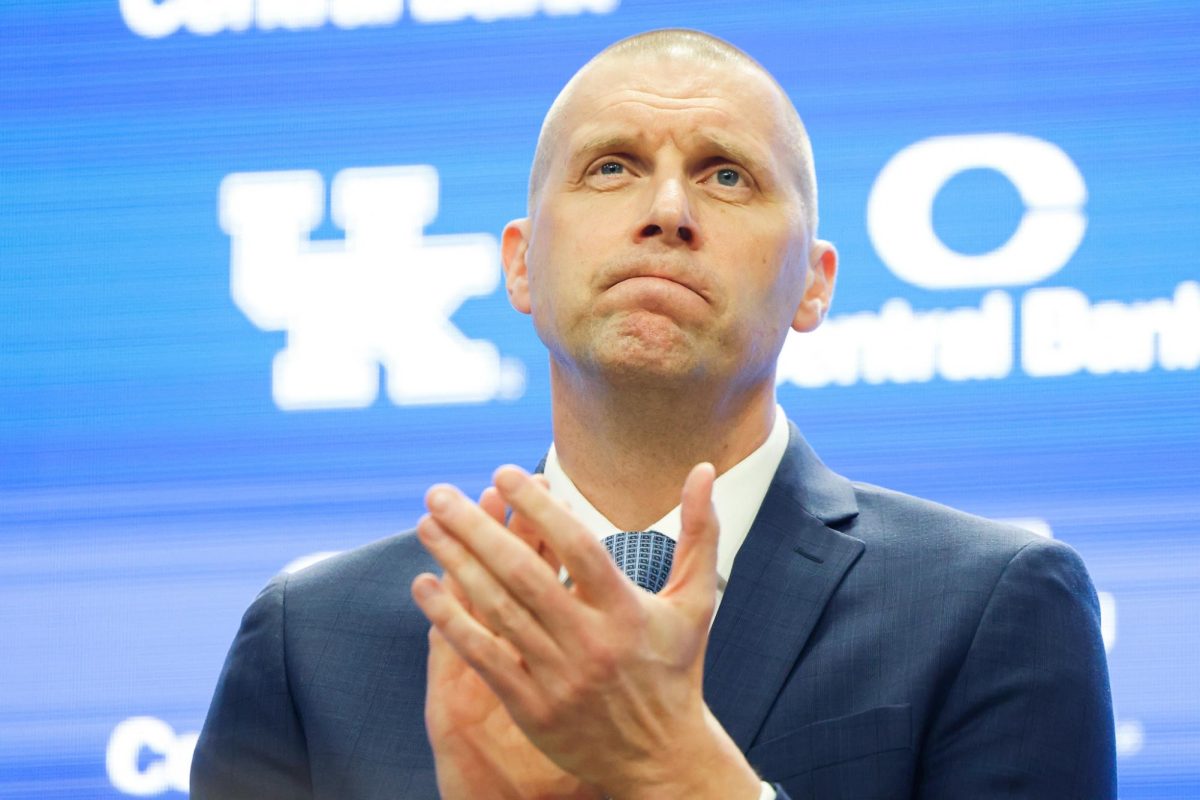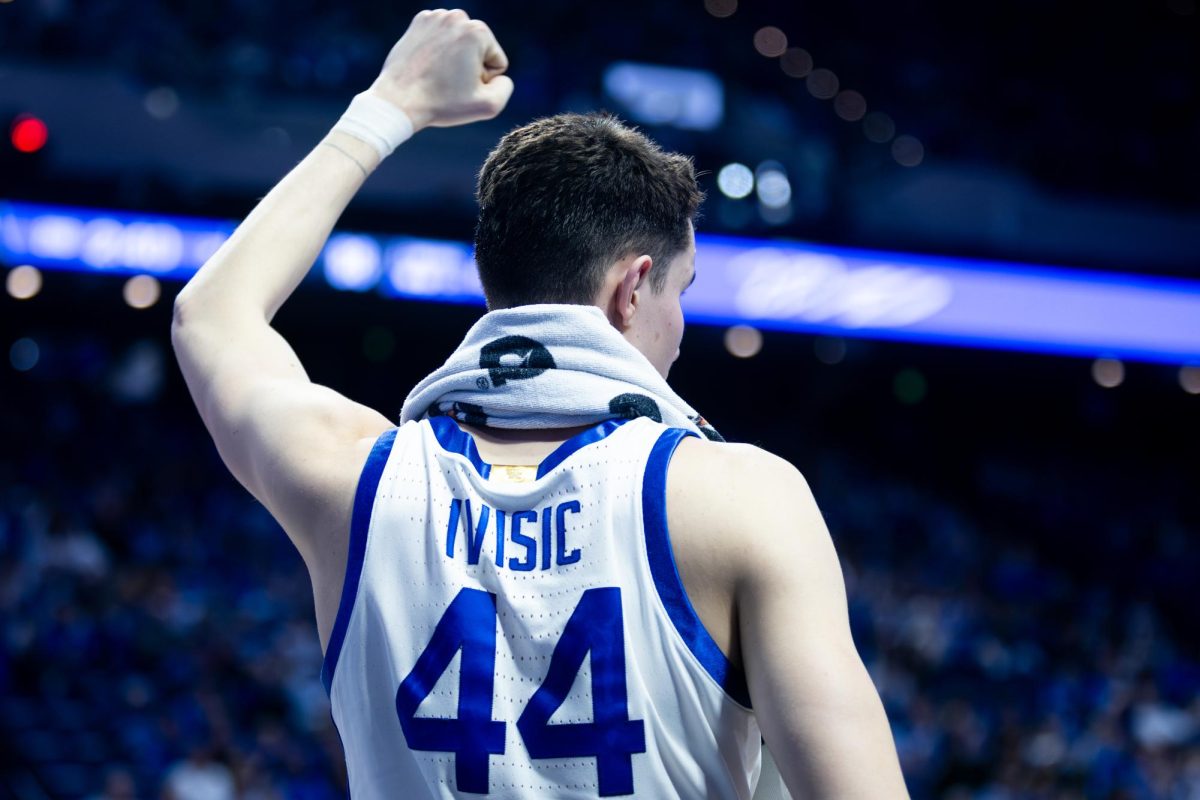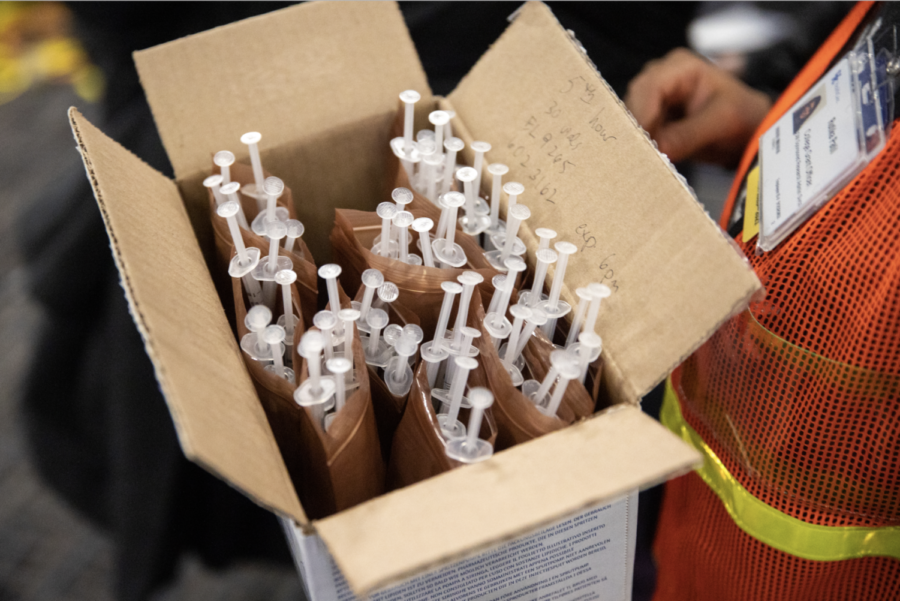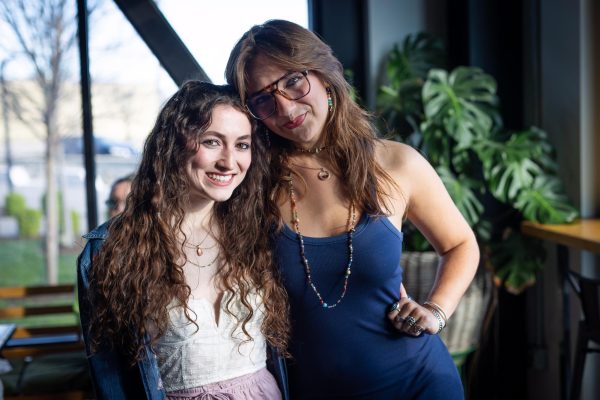Experts preview COVID-19 vaccine in community town hall
A box of COVID-19 vaccines is carried to vaccine stations on Saturday, Jan. 30, 2021, in Lexington, Kentucky. Photo by Jack Weaver | Staff
April 24, 2021
The University of Kentucky and UK HealthCare, in partnership with local faith leaders and SHARE Lexington, hosted a town hall Saturday morning to help answer questions about the safety, efficacy and long-term effects of the COVID-19 vaccines.
The panelists include, Dr. Sylvia Ofei, MD, Dr. Tukea Talbert, DNP, RN, CDP, Dr. DeShana Collett, Ph.D., PA-C, Dr. Trenika Mitchell, PharmD and Dr. Vincent Venditto, PhD.
“We want to continue to encourage people to have these conversations about the vaccine,” Dr. Talbert, DNP, RN, CDP said. “We’re not there yet and I don’t want anyone to think that we’re in this place where we’re all safe.”
“I think this is what happens when people come together for one common goal,” Dr. Mitchell, PharmD said about the multiple vaccines that were manufactured in less than a year.
“The vaccines are safe, they are effective, and they’re keeping people out of the hospital,” Dr. Venditto, PhD. said.
The first question was, “Who has been tested?” But more importantly, who wasn’t?
“They were tested on individuals 18 years or older so we did not have studies on younger children and pregnant women but in those studies. . . whether they were racial/ethnic groups, also underlying medical problems, common things we hear,” Dr. Ofei, MD said.
One participant in the Q&A asked, “Does the messenger RNA change my DNA?”
“The way that [the vaccine] works is that there are some messenger RNA, this is the genetic material that codes just a part of the virus, it’s just a small piece of the virus that’s not infectious, it’s just a small protein,” Dr. Venditto, PhD said. “That genetic material needs to be packaged in a lipid particle to help it get into cells a little bit better. . . Once it’s in the cell, that genetic material codes those proteins so that the cell can begin to generate that piece of the virus that our immune system can [respond to]. Once the genetic material is used, it’s destroyed.”
Dr. Venditto, PhD compared this to a Snapchat, once you send it, after a few seconds it’s gone forever.
Which vaccine is best?
“All three of the vaccines are good and effective,” Dr. Collett, Ph.D. said. “They help prevent various disease outcomes, preventing hospitalizations and even death.”
After being vaccinated, what symptoms might occur when you take it?
“Anytime you get a shot, where the shot was given, you may see pain in the arm, swelling in the arm and the best thing to do for that. . . moving the arm,” Dr. Mitchell, PharmD said, she continued. “Headaches, fever and chills,” may be symptoms after you get your vaccine as well.
Dr. Mitchell, PharmD also spoke on the Johnson & Johnson vaccine that was put on pause earlier this month following several blood clots after taking the vaccine but was lifted Friday.
“We had some people, very few, out of seven million people, 15 of those had this kind of clotting syndrome happen with them. . . [The FDA and CDC] restarted it, so you can get Johnson & Johnson starting today actually.”
Is COVID-19 deadly to young people?
“We are seeing younger individuals that are having really bad outcomes from it, also having long term complications from personal experience,” Dr. Ofei, MD said. “I have seen children come into the hospital after contracting COVID-19 and then they have a lot of issues from how their immune system is responding.”
Should you receive a vaccine now, or wait?
“You should receive the vaccine now. The best vaccine is the first one that becomes available to you,” Dr. Collett, Ph.D. said.
Why do you have to wear a mask post immunization?
“After we’re vaccinated, it is still possible for us to spread the virus. Although the rates are lower, it’s still possible to spread so if you’ve been vaccinated and somebody else hasn’t been, you could potentially transmit the virus to that person and get them sick,” Dr. Venditto, PhD. said.
Will we have to get a second round of shots? A third?
“It’s a little tough to say right now whether or not we will,” Dr. Venditto, PhD. said. “I know that there’s a lot of indication that it’s likely that we will need additional shots but right now it’s unclear what this is going to look like.”
How has the virus affected children?
“Definitely they are getting the COVID-19 infection and also what it’s effecting is that a lot of children that are presenting after the infection with these multi-system inflammatory response. . . when you talk about the heart, that is one system that can be affected and impacted.” Dr. Ofei, MD said.
At the conclusion of the Q&A session, those who were in-person were able to sign up for a vaccination if they chose to.
“If you’re not going to do it for yourself, do it for your circle of love and those people who you care about the most,” Dr. Talbert, DNP, RN, CDP said.





